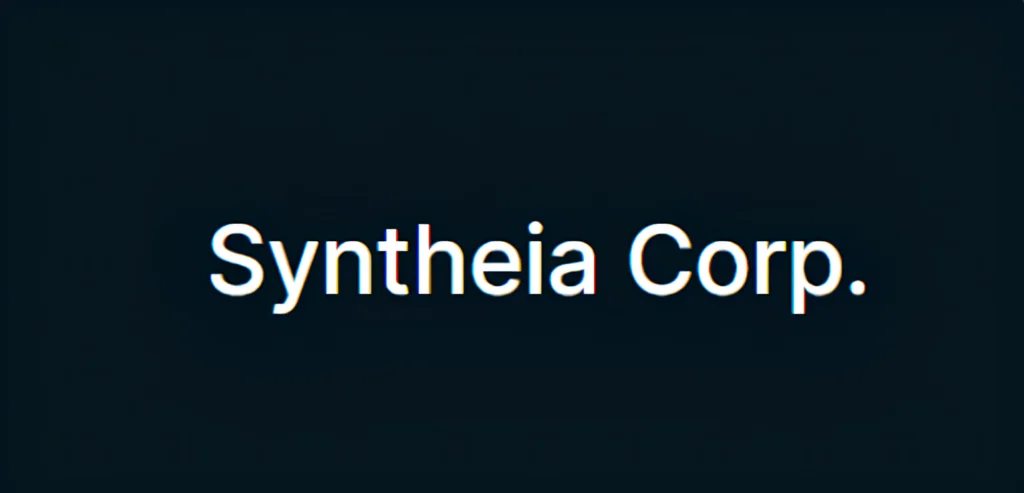With the quantum ecosystem ever-growing, it can be hard to determine who are the key players in this industry. In order to help understand the leaders and stakeholders of quantum, we at The Quantum Insider will guide you on a world tour to meet 40+ quantum companies, research facilities, and groups that provides a “who’s who” of the quantum world.
This is an ever-changing list, with new players emerging and the development of major partnerships. We know this isn’t an exhaustive list by any means – data from The Quantum Insider Intelligence platform captures over five hundred companies in the quantum tech value chain, and details on their operations – but it gives you a flavour of a cross-section of key quantum organizations and areas that they focus on.
This list will also reveal which locations around the world are current quantum “hotspots,” showing how this industry needs collaboration on a worldwide scale in order to succeed. Many of these companies have multiple locations around the world, making them global leaders, so we’ve tried to identify just one location so they’re not placed in multiple categories.
If you want to learn more, we’ve compiled the most comprehensive list of the top quantum computing companies available!

United Kingdom quantum organizations:
It’s no surprise that the UK is one of the top hotspots for quantum technology. The area has some of the biggest universities that have been looking at this technology for decades. These universities have sprung big names in quantum (Quantinuum, Oxford Quantum Circuits, Oxford Instruments, and more), showing the UK is one of the leaders within this industry.
The National Quantum Computing Center (national centre)
Many quantum hotspots have research centers that connect both industry and research together in order to form a quantum hub of collaboration. For the UK it’s the NQCC, a research center funded by the UK Research and Innovation, designed to address challenges of quantum computing scalability in order to help develop quantum computers. The Center Director is Michael Cuthbert, and the center itself is located in Oxfordshire.
Oxford Quantum Circuits (hardware)
Based in Reading, Oxford Quantum Circuits prides itself in being one of the leaders in building quantum computers. They work on everything from superconducting qubits to quantum computing circuits. Their website states that they offer the only quantum computer commercially available within the UK. Ilana Wisby is the founding CEO and Director of Oxford Quantum Circuits.
Universal Quantum (hardware)
Universal Quantum is a quantum company looking at developing a million-qubit quantum computer in the next few years. While this is a lofty goal, they are using their state-of-the-art trapped-ion qubits and electronic quantum gates to try and get the job done. Dr. Sebastian Weidt is a co-Founder of Universal Quantum.
Cambridge Quantum (now merged with Honeywell Quantum Solutions to form Quantinuum) (software)
Cambridge Quantum made headlines recently as they announced a large partnership with Honeywell Quantum Solutions to create Quantinuum. Cambridge Quantum itself develops AI-based quantum computing software and tooling. The company is also looking into quantum machine-learning for time-series modeling, setting itself apart as a leader in this industry. Ilyas Khan is the Founder and CEO of this company.
Oxford Instruments (hardware)
Oxford Instruments prides itself in being one of the top developers of tools to help cool down quantum computing systems. From quantum imaging to quantum sensing, this company works to give quantum computers the atmosphere they need in order to function. Leading this big-name company is Ian Barkshire, CEO.
Riverlane (software)
Located in Cambridge, Riverlane stands out as one of the top quantum computing software companies in the UK. It offers an accessible operating system for quantum computers, called Deltaflow.OS®, which is designed to address quantum error correction, one of the biggest problems in quantum computing to date. Heading up this company is CEO and Founder Steve Brierley.
QURECA (consulting)
Setting itself apart from the rest of quantum computing companies, QURECA works to develop the talent needed for the quantum industry. With quantum computing classes, career coaching, and access to thousands of opportunities, QURECA helps to connect companies with the perfect candidates within the quantum industry. The CEO of this company is Dr. Aracelia Venegas-Gomez
Europe quantum organizations:
Europe, like the UK, has developed a successful hub of quantum companies, research programs, and more. It too has seen partnerships as well as global cooperation to develop important technology within this industry. Within Europe, you’ll find big names and leaders within the quantum world (Delft Circuits, Qu&Co., Pasqal, Alice&Bob, and more), as they continue to work on creating the future of quantum.
European Quantum Industry Consortium (consortium)
The QuIC is an organization that connects quantum companies, quantum researchers, VC firms, and more to help boost the European quantum industry’s competitiveness and economic growth. The QuIC hosts many symposiums and events to help teach about the benefits of this technology. With hundreds of members, the QuIC helps to foster a productive quantum community within Europe. The Executive Director is Thierry Botter.
BlueFors (hardware)
Like Oxford Instruments, BlueFors is a company that provides tools to make quantum computing happen. Located in Helsinki, this company develops cryogen-free dilution refrigerator measurement systems that can provide the perfect ultracold environment needed for a quantum computer. In 2021, the company formed a long-term partnership with the company DevCo Partners Oy. The CEO of BlueFors is Rob Blaauwgeers.
IQM Quantum Computers (Hardware and software)
Based in Espoo, Finland, IQM is working to build world-leading quantum computers to benefit mankind and our future. In order to do this, IQM is working on tackling both the hardware developments as well as the software. In order to improve error correction, IQM’s second-generation quantum processors use on-chip components, boosting efficiency. Dr. Jan Goetz is the CEO & Co-Founder of IQM.
Delft Circuits (hardware)
Delft Circuits sets itself apart from other quantum companies by looking at engineering unique cabling for quantum computers. Located in the Netherlands, this quantum company provides microwave cryogenic cabling that is completely flexible and can be easily scaled up for a bigger project. Leading this market leader is CEO Sal Bosman.
Pasqal (now merged with Qu&Co.) (hardware and software)
Working out of France, Pasqal develops one-of-a-kind quantum computing hardware. Their quantum processing units are composed of hundreds of atomic qubits in 2D and 3D arrays, making the design perfect for quantum computing and simulation, as well as energy-efficient. Only recently did Pasqal acquire Qu&Co to combine both the hardware and software side of quantum technology. In charge of this leader full-stack quantum company is CEO Georges-Olivier Reymond.
Alice & Bob (hardware)
Also based in France, Alice & Bob is a quantum company focused on developing the perfect logical qubit. In order to do this, the company is working with superconducting circuits and their own cat qubit, which can lower errors in computing, to create non-linear driven systems. The CEO of Alice & Bob is Théau Peronnin.
The Middle East quantum organizations:
The Middle East is one of the areas with fewer well-known quantum companies and research groups. But the quantum ecosystem within the Middle East is growing steadily, as Israel has recently announced their own quantum computing project being developed for their national security. It will be unsurprising to see many other countries in the Middle East also work on their own quantum projects in order to grow this ecosystem more. For many current quantum companies and groups, the Middle East provides a prime market for collaboration and partnerships.
Classiq (software)
Based out of Israel, one of the biggest names in quantum computing within this area is Classiq, which is working on developing the next-level of quantum algorithms and software. Their quantum software platform boosts efficiency and optimizes the workflow, making it appealing for many partners and companies. Co-Founder and CEO Nir Minerbi leads the company.
Elyah (software)
Based out of Dubai with an office in Tokyo, Elyah offers a cutting-edge quantum software platform that can optimize workflow to be as efficient as possible. Called Quantum Workbench, the platform allows a user to build their own functions and even work on their programs offline. This program offers the power of up to 100 qubits. Users can choose a customized subscription plan that allows them to pick how much of the software they need.
Quantum Machines (hardware and software)
Quantum Machines provides a comprehensive hardware and software platform for performing quantum algorithms and experiments. The business is run by Dr Itamar Savin.
Asia and the South Pacific quantum organizations:
While the western hemisphere hosts some of the world leaders and biggest names in the quantum industry, Asia and the South Pacific are showing that they have the tools and drive to make top quantum companies as well. In February, the Sydney Quantum Academy hosted the first Quantum Australia conference, showcasing current quantum companies and fostering connections and partnerships with interested parties. As the industry continues to grow, both Asia and the South Pacific will no doubt continue to sprout new quantum companies that will join the rest of the global community.
Baidu Institute for Quantum Computing (software and hardware)
Working from China, the Baidu Institute for Quantum Computing is developing solutions to both quantum software and hardware challenges. From architecture to algorithms, Baidu is developing next-level technology that is allowing them to be a leader within the quantum industry in Asia. Their cloud-based quantum computing platform QuanIse allows clients to use the benefits of quantum computing without needing a quantum computer. The chairman and CEO of the Baidu Institute for Quantum Computing is Robin Li.
QNu Labs (software)
QNu labs, based in India, is a leader in quantum cryptography and security. Their platform Tropos is a quantum random number generator, which does not rely on mathematical algorithms, making it a perfect product for quantum security. All of QNu’s products have a cloud-based component, making them accessible to all clients. Leading this company is Sunil Gupta, co-founder and CEO.
Sydney Quantum Academy (acadamy)
In order to build Australia into a world leader in the quantum industry, the Sydney Quantum Academy is working to pair quantum companies with research groups and the Australian government. In using these collaborations, the Sydney Quantum Academy hopes to boost Australia’s quantum ecosystem and help develop the quantum workforce within the company.Only recently did the Academy launch the Quantum Australia conference. Peter Turner is the CEO of this group.
Quantum Brilliance (hardware)
With locations in both Australia and Germany, Quantum Brilliance is using international cooperation to be a market leader for quantum accelerators. Using diamond as their base material, the quantum accelerators from Quantum Brilliance do not need ultracold temperatures and have fewer errors. Heading the team of engineers and scientists is CEO Dr. Andrew Horsley.
Canada quantum organizations:
Canada is one of the top spots for quantum computing. With big names like Xanadu, Zapata Computing, D-Wave, and more coming from this area, Canada has established itself as a country leading the world in quantum computing. Its A-list companies make it an important stop along our world tour of quantum hotspots.
Quantum Industry Canada (consortium)
Like the NQCC and QuIC, the QIC works to help Canada retain its world-leader status in the quantum industry by connecting government and business together to develop breakthroughs in technology. The QIC also uses the expertise of these many groups for various applications including quantum computing, quantum communications and cryptography, quantum sensing, and quantum-safe cryptography. The board of directors for QIC includes Michele Mosca, Bruno Couillard, Rachel Taylor, Sally Daub, and Phil Kaye.
Xanadu (software and hardware)
Combining a cloud-based platform with AI software allows Xanadu to offer cutting-edge products for clients looking to use the power of quantum computing. Their platform can be used for a variety of applications in quantum computing. The company also offers a quantum photonic processor using silicon photonic chips that can function at room temperature. Xanadu also has an open-sourced quantum computing library, the first of its kind. Their founder and CEO is Christian Weedbrook.
D-Wave (hardware and software)
As a leader in quantum computing, D-Wave offers both state-of-the-art software and hardware for its clients. From its 128-qubit annealing processor to a cloud-based platform, D-Wave’s multidisciplinary approach allows for better solutions and boosted efficiency. Their CEO is Alan Baratz.
1Qbit (software)
As a leader in quantum software, 1QBit harnesses the power of the cloud to allow clients to use their products anywhere. Their quantum algorithms can help with risk management and optimize problem-solving processes. The company prides itself in having a multi-disciplinary team to develop its next-level technology. Andrew Fursman is the Co-Founder and CEO of 1QBit.
Agnostiq (software)
Zapata Computing (software)
Like other quantum computing software companies, Zapata Computing offers quantum software and algorithms. Their software Orquestra, is designed with applications in many fields, including chemistry, finance, logistics, pharmaceuticals, engineering, and materials. With over 49 quantum scientists and engineers, Zapata Computing is standing out as a market leader. The CEO and Founder of this company is Christopher Savoie, Ph.D., JD.
USA quantum organizations:
With probably the highest number of quantum companies, the USA is one of the world leaders at developing quantum technology. Because there are so many quantum companies within the country, we are going to split the USA into two sections, east coast and west coast, showing which areas are particular hotspots for quantum technology.
The East Coast and Chicago
The east coast has been a buzzing hive of activity when it comes to quantum technology. With colleges like Harvard and Yale University spawning off companies, many big names are located on the east coast of the U.S. Chicago, as we’ll see, has recently become a major hub for quantum activity, thanks mainly to the Chicago Quantum Exchange.
Aliro Quantum (software)
Coming out of Harvard University and based in Cambridge, MA, Aliro Quantum is one-of-a-kind. The company prides itself in offering a commercial entanglement service for quantum security. From better GPS navigation and accuracy to quantum-secure communications, Aliro Quantum offers multiple solutions to practical problems. At the helm of this innovator is Jim Ricotta, CEO, and Chairman.
Raytheon Intelligence & Space (hardware)
Quantum technology is just one branch of the many technologies developed at Raytheon’s Cambridge, MA location. From developing superconducting qubits to integrated photonics, Raytheon is taking a multidisciplinary approach to solving the problems with quantum computing. The President of the company is Roy Azevedo.
IonQ (hardware and software)
IonQ is a leader in developing the next quantum computer as it is combining both software and hardware. Their quantum computer uses neutral atoms for qubits as well as linear ion traps on chips to help work on reducing errors to the computation. Based out of Maryland, IonQ is led by the President and CEO Peter Chapman.
Quantum Circuits (hardware)
Located in Connecticut, Quantum Circuits came out of Yale University, led by some of the brightest minds in quantum research. Since then, the company has been working on developing superconducting qubits, trying to make them scalable to address any problem. Martin Mengwall is the President and CEO.
IBM (hardware)
IBM is a company with a lot of fingers in a lot of different pies. One of them is quantum technology, as IBM recently unveiled their Q System One, the world’s first: “integrated universal approximate quantum computing system designed for scientific and commercial use” in 2019. Since then the company has been making strides to develop better and more accurate quantum technology. Arvind Krishna sits as the CEO and Chairman of this innovator.
Chicago Quantum Exchange (group)
The Chicago Quantum Exchange was founded to connect individuals, companies, and researchers together to work on quantum technology. Based in the Midwest, the Chicago Quantum Exchange sits as a mecca of quantum technology in the middle of the country. With partners like Fermilab, the Argonne National Lab, EeroQ, Quantinuum, Atom Computing, and ASM, the Chicago Quantum Exchange is working to push the barriers of what quantum technology can do. Leading the Exchange is Director David Awschalom.
EeroQ (hardware)
Based in Chicago, EeroQ is a leader in quantum computing within the Midwest. The company is working on building a large scale quantum computer by using trapped electrons on the surface of superfluid helium, allowing for faster gates and longer coherence times. The CEO of this company is Nick Farina.
Colorado, California, and the West Coast:
Colorado has recently made a name for itself as a leader in quantum computing. With quantum research centers like NIST and JILA located in Boulder, along with companies such as Atom Computing, ColdQuanta, Maybell Quantum, and others having locations nearby, it’s no surprise that Colorado is coming out on top in developing the technology of tomorrow.
NIST and JILA
The National Institute of Standards and Technology (NIST) has been a world leader in physics and quantum research for 60+ years. Located in the heart of Boulder, this research institute works to develop tools for the future, improving precision measurement and developing the technologies behind many daily devices, including gas pipelines and laser surgeries. NIST has helped to develop many companies and helps to foster a community of quantum interested individuals.
JILA, a partnership between NIST and the University of Colorado Boulder, has several physicists focused on quantum communications and is known for its quantum science. It has housed 3 Nobel laureates and is a world leader in exploring the frontiers of physics. Like NIST, JILA has also helped develop various company spin-offs.
Maybell Quantum (hardware)
Based in Denver, Maybell Quantum is working toward developing tools for a quantum computer that has fewer resources. Their latest product, “the Icebox,” is a cryogenic platform that can be used to cool quantum processors. While typical cryogenic refrigerators take up a lot of space, Maybell Quantum’s promises to hold more processors in 1/10th the space. This company is led by Founder and CEO Corban Tillemann-Dick.
ColdQuanta (software and hardware)
Using cold atoms as a unique method, ColdQuanta has created multiple quantum information platforms that can be applied to many different fields. ColdQuanta is based in Boulder and has ties to JILA, as its CTO is Dana Anderson, a JILA Fellow who has spent decades studying quantum mechanics. ColdQuanta also offers state-of-the-art quantum devices, ranging from magneto-optical traps to atomic clocks. Leading the company is CEO Scott Faris.
Honeywell Quantum Solutions (a part of Quantinuum with Cambridge Quantum) (hardware)
In developing trapped ion qubits, Honeywell Quantum Solutions has worked to apply its next-level technology to many different industries including oil and gas, telecommunication, manufacturing, finance, and aerospace and defense. In a recent merger with Cambridge Quantum to make Quantinuum, Honeywell Quantum Solutions has now expanded its reach across the globe. The Chairman and CEO of this company is Darius Adamczyk.
California:
Like Colorado, California has become a big state for quantum computing, in part due to universities like UC Berkeley and Stanford. With big companies like Google, NASA, Microsoft, and Amazon all having locations in this state, it’s no surprise that California has become a leader in quantum technology.
Microsoft’s Azure Quantum (QCaaS)
With a rich history of developing the next level of technology, it’s no surprise that Microsoft is working to develop a quantum computer. The quantum branch of the company, called Azure Quantum (in Santa Barbara), is working on the topological qubit, supposed to be faster, smaller, and more reliable than other qubits. Only recently has the company announced a key scientific breakthrough in making this qubit possible. This part of the company, as well as the rest, is led by CEO Satya Nadella.
Amazon Web Services (QCaaS, hardware, consulting)
It’s no surprise that after space travel, Amazon CEO Jeff Bezos is looking to make a mark in quantum technology. The Amazon Quantum Solutions Lab, based in Pasadena, works as a consulting group, connecting individuals with experts to learn more about quantum computing. The Solutions Lab offers various research programs for interested individuals and companies to join, creating a community around Amazon’s offerings. The business also offers cloud access to quantum computers and is researching building quantum computers.
Atom Computing (hardware)
Using neutral atom technology to build reliable qubits, Atom Computing stands out as a market innovator, with locations in Berkeley, California, and Colorado. The company prides itself in creating a stable platform with more error correction. Its Phoenix system has 100 qubits, which users can utilize in its quantum software platform to optimize efficiency. Leading this innovator is Rob Hays CEO and President.
PsiQuantum (hardware)
Considered a world leader in photonic quantum computing, PsiQuantum uses its expertise to develop some of the next-level hardware needed for error correction in quantum computing. Based in Palo Alto, PsiQuantum is at the center of the Californian quantum community. It is led by Jeremy O’Brien, CEO.
Rigetti Computing (hardware)
Located in Berkeley, Rigetti is working on developing quantum processor chips for better and more accurate quantum computing. The company also works on superconducting qubits, as well as has an open-sourced quantum computing platform that a user can take advantage of. Rigetti Computing has already released a line of quantum computer models that also use the cloud. Its website reveals the high accuracy of these models. Rigetti Computing is led by Chad Rigetti, CEO.
Google Quantum AI (hardware)
It wouldn’t be fair to not include Google in the discussion of quantum computing. The business goliath’s famous quantum supremacy announcement helped to make the industry more popular, and now the company is developing quantum hardware. It has paired with both NASA and Rigetti Computing to help in NASA’s QuAIL (Quantum Artificial Intelligence Laboratory) projects, working to optimize and solve problems that happen in “NASA’s aeronautics, Earth and space sciences, and space exploration missions.” Google is of course led by Sundar Pichai, CEO.
Wrap up
If you are reading this, you finished the global tour! Additionally, out of the 40+ companies, very few have female CEOs. While many of these companies on this list have females in leadership positions, it is not always obvious from looking, signifying a need for more visibility to these female leaders.
This list is far from exhaustive but shows how the industry currently sits, with the western hemisphere hosting the most big-names in the who’s who of quantum technology.
Read more:
- 6 Companies Working With Photonic Quantum Computing Technology in 2022
- Quantum Computing Market Expected to Grow at Double-Digit Rate
- 31 Quantum Computing Hardware Companies Building Future
For more market insights, check out our latest quantum computing news here.
















